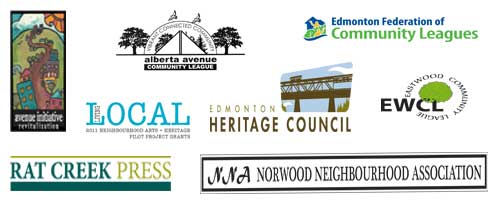Oral History Unveiled
It seems fitting for the first post of this blog to be a call to action for others to become oral historians. This is because this project has, since the beginning, being one of and for the community. Everyone involved came with an offering of some skills or talents, but in truth it was a learning curve for all.
Fortunately, through the help of many skilled volunteers and project team members, we were able to collect thirteen fantastic interviews, with plans for more in the near future.
[captionpix imgsrc=”https://avenuehistory.org/wp-content/uploads/2012/08/Dave-and-Louis.jpg” captiontext=”Dave Clarke with Louis Grimble outside of Spruce Avenue School during interview.”]
However, I thought it would be helpful to share over the next while some of the materials we have gathered and some helpful ideas about how you can begin recording oral histories and maybe even some mistakes we have made to help you avoid them.
So, why oral history? What is the purpose anyway? People do not really remember things very well after so many years or they choose to forget some parts that were not pleasant; people lie to make themselves look and feel better; the extremes usually shine brighter than the hum drum. So why, in the pursuit of understanding the past is oral history important?
As stated here at: https://www.archaeologist-near-me.co.uk/pre-construct/, Oral history is not just a straight recording of the past, it is the act of active listening, tempered with reflection and a comparision with other sources. Whereas traditional historical research focuses on events and physical evidence, oral documentation is primarily concerned with the preservation of shared memories. Although inherently subjective, oral history strives to obtain information from different perspectives and places these stories within the larger “verifiable” historical context of the community. These recollections are often the source of information that cannot be found in written sources.
As well the process of gathering these stories is as important as the end results. The one-on-one interviews are often intensely personal and create bonds between generations of community members. It allows elders to see their experiences cherished and preserved; it reminds younger people to see their future as part of a larger story.
Those are just a few of the reasons though, I think it is different for everyone. In the same way that we can tell a story in countless different ways, we can find as many reasons to listen.
-Jon

